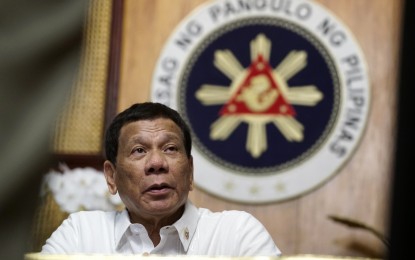Lifestyle
Parallel campaigning presses candidate’s advocacy: strategist

What started as an effort to promote the advocacy against drugs and corruption of then Mayor Rodrigo R. Duterte of Davao City has now become a coordinated strategy called “parallel campaigning” to press for the advocacies of the candidates for Monday’s mid-term election, a campaign strategist said. (PNA file File Photo)
CEBU CITY – What started as an effort to promote the advocacy against drugs and corruption of then Mayor Rodrigo R. Duterte of Davao City has now become a coordinated strategy called “parallel campaigning” to press for the advocacies of the candidates for Monday’s mid-term election, a campaign strategist said.
Edward “Ed” Mendez, a former campaign volunteer strategist who helped Duterte campaign in Cebu, said parallel campaigning as a strategy is now gaining ground in assisting the existing campaign structure of senatorial candidates.
A parallel campaign group, Mendez said, is an “umbrella organization of different organizations whose members who are mostly volunteers have shared aspirations, visions, and agenda to that of the candidates they are helping with”.
“Because it is a volunteer group working laterally with the existing political machinery, the volunteers running the parallel campaign has to commit their own resources,” said Mendez.
Mendez said he is now working as head of the parallel campaign team that is helping the candidacy of former Philippine National Police chief Ronald “Bato” dela Rosa.
Although a lateral group, parallel campaigners can work even if it is not “aligned with the party’s agenda”, considering that what it anchors on is the agenda of the candidate himself.
It means that Mendez’s group’s efforts are on top of the efforts of the Partido Demokratiko Pilipino-Lakas ng Bayan (PDP-Laban).
Mendez recalled that in 2016, PDP-Laban consisted only a handful of members with little to no candidates carrying the banner of then Mayor Duterte.
“PDP-Laban was not a structured party then. Nobody supported the president. It had a very few members at that time. So we see the need to organize the supporters regardless of what kind of organization they came from,” he said, adding that their group had volunteers from organizations of lawyers, riders, youth, doctors, women, retirees, drivers, among others.
Mendez, who also became provincial chairman and president of PDP-Laban in Cebu, also recalled how the supporters shelled out their own money to finance the activities relative to the parallel campaign for Duterte.
Advocacies as ‘uniting platform’
Mendez said volunteers in a parallel campaign can only work together if they have common views on certain issues of the society.
“In 2016, we found federalism as a good platform that every one of us in the team agreed on,” he said.
“We used the federalism agenda to organize different people from all walks of life who were supportive of Duterte’s view about our country’s government system,” he added.
According to him, absence of motivation in a macro-perspective affects the set-up of the parallel campaigning.
Issues about the proliferation of illegal drugs as well as corruption stories hounding the government were also the uniting factor of volunteers, he said.
To highlight federalism, drugs, and corruption as major issues, Mendez’s parallel campaign team rolled out different activities such as symposiums, fora, and town hall meetings in different areas in Cebu.
A campaign that is personality-centered, he noted, is a difficult politics to parallel with.
Challenges in parallel campaigning
Mendez saw the selection process in choosing volunteers as among the challenges in parallel campaigning.
He said that it is difficult to build hedges against “interest individuals” whose own agenda is for their own “self-vested interest”.
However, the team can always work with people of “different personalities but with the same vision”.
Social media as platform
Mendez said social media has played an important role for a parallel organization’s plan to move their advocacy.
“Social media is a good tool to pursue our advocacy because it has no boundary and it is free, collaborative and you can say what you want without restriction,” he said. “Once the advocacy is formed and became viral in social media, usually the traditional media will take it as cue of an upcoming issue of the day.”
He cited a current trend where traditional media “spies” on the social media account of their sources to get a hint on what is going on in the political front.
“Given the “sprouting” of influencers or bloggers in the social media who you will not find during the 2010 election, I think it has a bigger impact to the electorate in Monday’s mid-term poll,” Mendez said.
“As internet penetration increases in every household in our community, social media will have a bigger influence not only on election but in our daily life,” he added.
Survey as a tool
According to Mendez, parallel campaigners look at surveys as a tool that can guide him to move a certain agenda.
“Remember, traditional surveys are lacking with true basic paradigm, that is sampling, which is very small,” he said. “Use surveys to examine if the candidate’s advocacy is aligned with the pulse of the people.”
After-election activity
Some of the organizations under the parallel campaign will morph into another advocacy-oriented group, Mendez noted.
There were volunteers who joined the government, while others remain “lobbyists” of pro-people agenda.
In the case of Dela Rosa’s campaign volunteers, Mendez said he is looking at internet connectivity as a major issue where volunteers may lobby for passage of related legislative measures if their candidate find a slot in the next Congress.





















